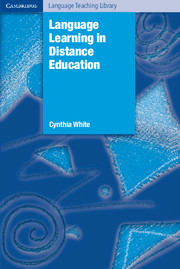Summary
Introduction
Learner autonomy has long been considered both a central and a problematic concept in distance language learning. It is closely aligned to assumptions about what constitutes an ideal learning environment and a quality distance learning experience. In some distance language courses, particularly within traditional models of distance learning, there is an emphasis on the importance of learner independence. Emerging paradigms for distance language learning place an emphasis on learner development through collaborative control of learning experiences.
Included in this chapter is an overview of the evolution of the autonomy concept – how it has been conceptualised, debated and critiqued in the field of distance learning. The components of learner autonomy identified by Tudor (2001) as learner training and learner involvement form the basis of a discussion of different approaches to helping language learners develop their capacity for autonomy with reference to two distance language programmes. The first approach is based around strategy development and learner training through materials design, while the second places emphasis on involving learners in choosing and accessing personally meaningful learning opportunities in the context of social interaction. In the second half of the chapter the central argument is that the views language teachers hold about learner autonomy need to be considered in relation to the principles and ideals associated with different paradigms of distance learning. The relationship between emerging paradigms for distance learning and opportunities to develop autonomy through collaborative control of learning experiences is an important aspect of this argument. It is linked with a discussion of research into the potential of text-based CMC for the development of reflective learning conversations among distance language learners.
- Type
- Chapter
- Information
- Language Learning in Distance Education , pp. 149 - 168Publisher: Cambridge University PressPrint publication year: 2003



